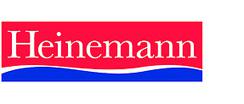The Health and Science Sector
This section of the specification presents an opportunity to explore the myriad of careers that is available within the health and science sector. A key aspect of T-Level Science is the linkage between theoretical concepts and their application to the ‘real world’, something which can be difficult to achieve unless both teachers and students have access to appropriate information and resources. The listings on this page provide two main ways of support – firstly, information, career maps, policies and standards that would be useful guidance for teachers seeking to ensure that the classroom experience authentically represents the workplace; secondly, the listings also provide articles, information, video clips and career profiles that could be used directly in lessons as a teaching resource and/or used by students to learn independently.
- ALL
- Textbook
- Experiment
- Interactive resource
- Activity sheet
- External link
Textbook
Science in Society Readers: Reader H - Industry - Men, Money and Management
This reader from the Science in Society series looks at the challenges faced by industry in society including the need for good management practices, methods of production and investment. The reader includes topics such as teamwork in industry, role of managers in industry, the role of unions in a company, what is management, industrial relations, the role of industry and various others. Although the resource itself is quite old, the principles that are discussed are still relevant - excerpts from the resource could provide the basis for a comprehension activity or task that is constructed by the teacher
Experiment
Inside STEM careers: investigating organic foods
This resource by Science & Plants for Schools (SAPS) looks at the work of a product manager for a herb growing company Through investigating organic food crops and horticulture, students gain a greater understanding of the career opportunities available in plant biology and in the food science industry. Full supporting materials, teacher guidance and student information sheets are provided.
Interactive resource
Pharmaceutical Industry: Frequently Asked Questions
From the Association of the British Pharmaceutical Industry (ABPI), this interactive resource halps to answer questions that students have about the production of medicines and the careers available in the pharmaceutical industry.
Activity sheet
Showcasing careers in STEM
A starting point for students to find out more about the careers available in the health, science and wider STEM sector. Students use the Start website to find out which careers are linked to subjects including science, technology, engineering, D&T and mathematics. In groups the students are asked to select two particular STEM careers and create a presentation piece to introduce these careers to other students.
External link
How medicines are made
A high quality video clip produced by AstraZeneca which looks at the production process of medicines and which covers elements of good manufacturing practice (GMP). The video could be used in an interactive way by converting to an ‘active video’ task whereby students complete a series of questions related to the video as the clip plays. Alternatively, a site such as https://ed.ted.com/ could be used to embed the video into an online task or question set developed by the teacher.
Health and Science Occupational Maps
Produced by the Institute for Apprenticeships & Technical Education, the occupational maps presented here provide an overview of the careers and occupations (technical, higher technical and professional) available through the health, heathcare science and science pathways. The maps contain links for each of the careers listed which provides more detailed information on the role. A brief case study or focus on one occupation each week could feature in curriculum planning and help develop students’ awareness of potential career choices
NHS - Working in health
This NHS webpage provides a detailed selection of career profiles, real-life stories and case studies of people that work in the healthcare profession. There are various subpages that can be accessed via the navigation menu that provide explanations on the role of the public heath workforce, the role of healthcare science, pay and conditions and advice on how to improve the chance of accessing careers in this sector. The webpage provides useful information to both teachers and students and would be a helpful addition to a school or college VLE website.
Health and care professions council
The Health and Care Professions Council exists to protect the public by regulating 15 health and care professions in the UK. They set standards for education, training and practice, approve training programmes, keep a register of professionals and take action if standards are not met. Various documents and guidance reports have been produced which would be useful for both teachers and students to refer to when considering quality standards and organisational policies. These include:
Guidance on conduct and ethics for students
Confidentiality – guidance for registrants
Guidance on health and character
Health, disability and becoming a health and care professional
Standards of conduct, performance and ethics
10 alternative science careers
A webpage by Prospects, this provides a detailed overview of alternative science careers – aimed at students that love science but don’t want to work in a laboratory. Various options are discussed and the webpage demonstrates the diversity of careers that are available, including publishing, law, communications, business and manufacturing. Students could be asked to identify two or three roles that most interest them and provide a short presentation on these careers to the class.
Quality Assurance Standards
This is a short article that forms part of an Introduction to Food Science course available on the Future Learn platform. The article provides a summary of definitions relating to different standards and these could be developed into a mix and match activity or be used as a simple comprehension exercise with students.
The Role of Auditing, Food Safety, and Food Quality Standards in the Food Industry: A Review
This comprehensive article examines the role of audits and food safety and quality assessment systems in the food industry, presenting the results of several studies and briefly describing the main food safety and quality standards currently used in Europe (with particular emphasis on the United Kingdom and Greece), the U.S., Australia–New Zealand, and Asia. The resource is useful for teachers that are unfamiliar with the rationale for these systems and selected excerpts could be used as part of a comprehension exercise with students – this could be made interactive by setting up a quiz using a platform such as Socrative or Kahoot to test knowledge and understanding once the excerpt has been read.
Understanding Good Laboratory Practice
This is quite an old video clip but the principles are still relevant. The video could be used in an interactive way by converting to an ‘active video’ task whereby students complete a series of questions related to the video as the clip plays. Alternatively, a site such as https://ed.ted.com/ could be used to embed the video into an online task or question set developed by the teacher
Good Manufacturing Practice and good distribution practice (Medicines and Healthcare products regulatory agency)
This is the UK government guidance on good manufacturing and good distribution practice and relates to medicines. As it is governmental guidance, it is quite dry material and probably best used to improve teachers knowledge rather than a direct resource to be used by students.
Discovery UK: How it’s made
Discovery UK has its own channel on youtube where numerous videos that illustrate different manufacturing processes are collated. Most of the videos are around 5-6 min in length, making them suitable for use as a short stimulus which could be used as part of a lesson starter activity or for wider discussion.
Catalyst: Innovation and impact of the science sector
This the homepage of STEM Learning’s Catalyst publication. It contains research insights and cutting edge developments, pitched at 14-19 year old students, written by leading academics. Catalyst is published 3 times a year with teachers' notes, to help bring the articles alive in the classroom. Previous episodes of Catalyst are now available for download from the archives and these would make excellent stimulus material for comprehension activities, presentations and discussions/debates.
iCould
iCould features many videos of people talking about their careers – explaining their job role, career path, and how different factors have shaped their direction. This would useful to embed into a VLE site for students to explore and some of the career profiles could also be used as lesson based resources
The National Careers Service
The National Careers Service website provides detailed summary information on a range of different careers and also provides a skills assessment which can help students see which careers would be most suitable to them in the future. The career descriptions and information could be used to produce a series of wall displays or friezes that are prominent in the laboratory or classroom and encourage students to consider the range of opportunities that are available.





